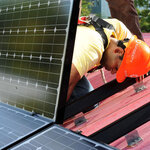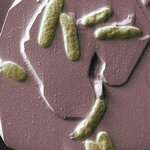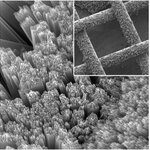
Roof-top solar panels are just one part of the micropower revolution. Presidency Maldives, CC BY-NC
By Morgan Saletta, University of Melbourne
There is no shortage of shouting and dire warnings about the state of the climate and our need to phase out fossil fuels. But there is a more silent revolution happening too — in micropower.
Small-scale electricity generation is slowly replacing big fossil-fuel driven power plants, which are currently the world’s single largest contributor to greenhouse gas emissions.
These micro-electricity producers are relatively small scale, inexpensive, and most…





